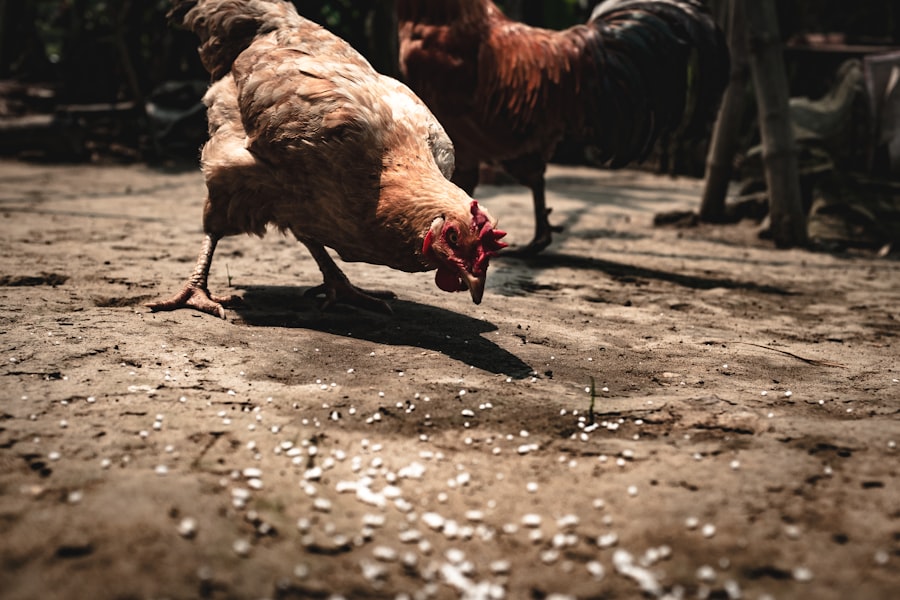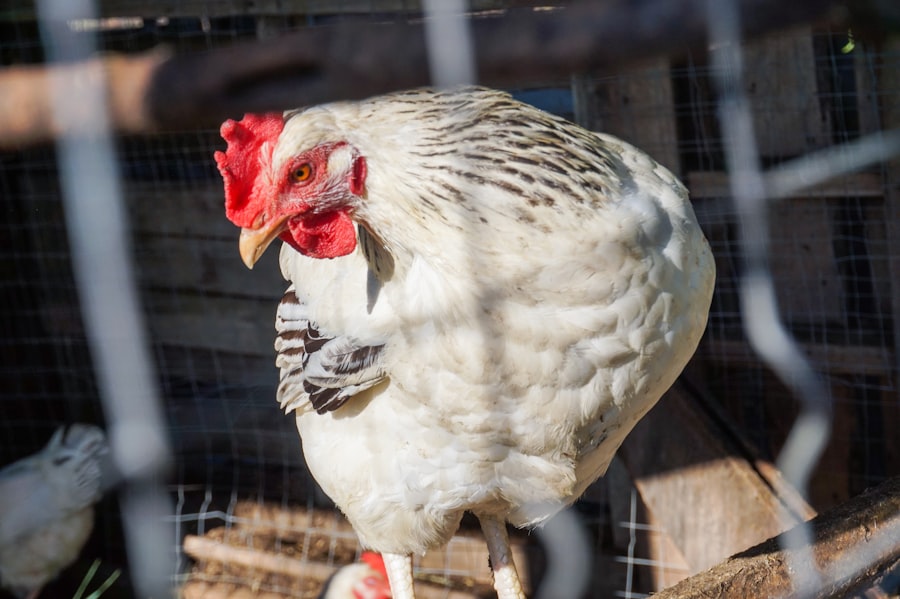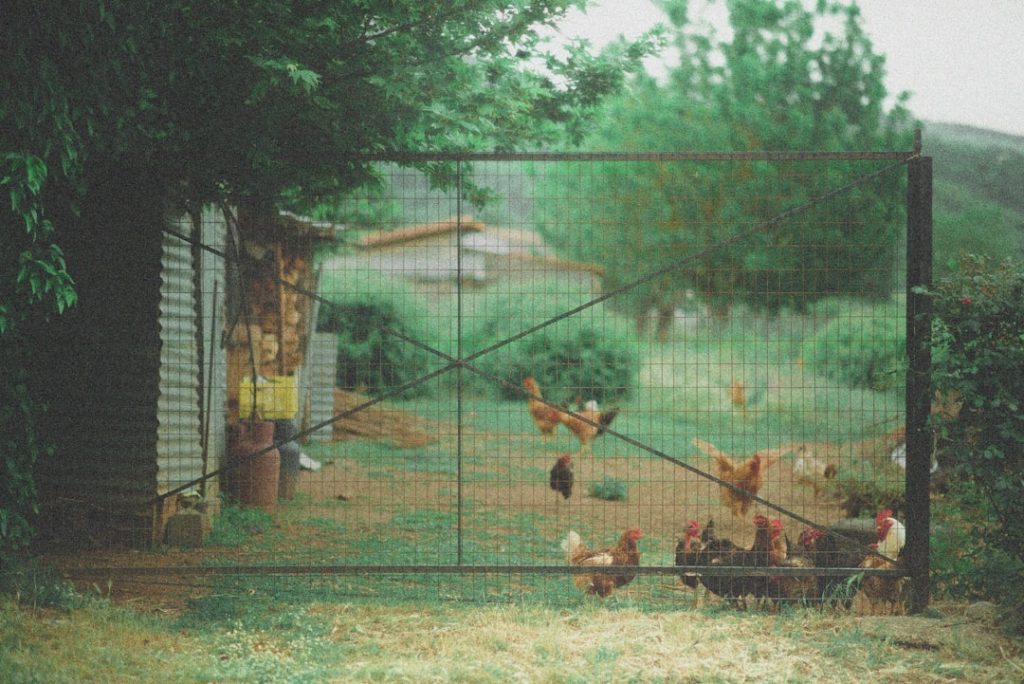Setting up a chicken coop requires an initial investment in equipment and materials. The cost of a pre-made coop can range from $200 to $1000 or more, depending on size and features. Building a coop yourself involves purchasing materials such as lumber, wire mesh, roofing materials, and hardware, which can cost a few hundred dollars.
Essential equipment for a chicken coop includes feeders, waterers, nesting boxes, and perches. These items typically cost between $50 and $200, depending on flock size and equipment quality. The cost of purchasing chickens varies by breed and age, ranging from $3 to $30 per bird.
In total, the initial setup costs for a chicken coop can range from a few hundred to a few thousand dollars, depending on factors such as flock size, material quality, and equipment choices. While this represents a significant financial investment, many find the benefits of fresh eggs and chicken-raising to be worthwhile.
Table of Contents
- 1 Monthly Expenses
- 2 Coop Maintenance
- 3 Feed and Bedding
- 4 Veterinary Care
- 5 Predation Prevention
- 6 Potential Savings
- 7 FAQs
- 7.1 What are the initial costs of keeping chickens at home?
- 7.2 What are the ongoing costs of keeping chickens at home?
- 7.3 How much does chicken feed cost?
- 7.4 What are the costs of maintaining a chicken coop?
- 7.5 Are there any unexpected costs associated with keeping chickens at home?
- 7.6 Are there any cost-saving measures for keeping chickens at home?
Key Takeaways
- Initial setup costs for raising chickens include purchasing a coop, feeders, waterers, and heat lamps.
- Monthly expenses for raising chickens include the cost of feed, bedding, and any additional supplies needed.
- Coop maintenance involves regular cleaning, repairs, and ensuring proper ventilation for the chickens.
- Feed and bedding costs can vary depending on the size of the flock and the quality of the products used.
- Veterinary care for chickens may include vaccinations, deworming, and treatment for common illnesses.
Monthly Expenses
Monthly Expenses for Chicken Keeping
Once your chicken coop is up and running, you’ll need to consider the monthly expenses associated with keeping a flock of chickens. The most significant monthly expense will likely be feed, which can cost around $15 to $30 per month for a small flock of 4-6 chickens.
Feed and Bedding Costs
In addition to feed, you’ll also need to budget for bedding material such as straw or wood shavings, which can cost around $10 to $20 per month. The cost of chicken feed can vary depending on the type and quality, but you can expect to spend around $15 to $30 per month for a small flock.
Utility Bills and Other Expenses
Another monthly expense to consider is the cost of water and electricity for your coop. You’ll need to provide fresh water for your chickens daily, which may result in a slight increase in your water bill. Additionally, if you choose to use artificial lighting in the winter months to encourage egg production, this will also contribute to your monthly electricity costs.
Total Monthly Expenses
Overall, the monthly expenses for maintaining a chicken coop can range from $25 to $50 or more, depending on the size of your flock and the quality of the feed and bedding you choose. Keeping a flock of chickens comes with monthly expenses that should be factored into your budget.
Coop Maintenance

Maintaining a chicken coop is essential for the health and well-being of your flock. Regular coop maintenance includes tasks such as cleaning out the coop, replacing bedding, and ensuring that the coop is secure from predators. Cleaning out the coop should be done on a regular basis to prevent the buildup of droppings and bacteria, which can lead to health issues for your chickens.
Additionally, replacing bedding regularly will help keep your coop clean and odor-free. Ensuring that your coop is secure from predators is also an important aspect of coop maintenance. This may involve repairing any damaged fencing or adding additional security measures such as locks or predator-proofing the coop itself.
Regular inspections of the coop for signs of wear and tear are also important to catch any potential issues before they become major problems. Overall, coop maintenance is an ongoing task that requires time and effort, but it is essential for keeping your flock healthy and safe. Maintaining a chicken coop involves regular tasks such as cleaning out the coop, replacing bedding, and ensuring that the coop is secure from predators.
Cleaning out the coop on a regular basis helps prevent the buildup of droppings and bacteria, while replacing bedding regularly keeps the coop clean and odor-free. Ensuring that your coop is secure from predators may involve repairing damaged fencing or adding additional security measures such as locks or predator-proofing the coop itself. Regular inspections of the coop for signs of wear and tear are also important to catch any potential issues before they become major problems.
Overall, coop maintenance is an ongoing task that requires time and effort, but it is essential for keeping your flock healthy and safe.
Feed and Bedding
Feeding your flock a balanced diet is essential for their health and productivity. The cost of chicken feed can vary depending on the type and quality, but it is important to invest in a high-quality feed that provides all the necessary nutrients for your chickens. In addition to commercial feed, you may also choose to supplement their diet with kitchen scraps or treats such as mealworms or scratch grains.
Bedding material is also an important consideration for maintaining a clean and comfortable coop environment for your chickens. Common bedding materials include straw, wood shavings, or shredded paper, which provide insulation and absorb moisture. The cost of bedding material can vary depending on the type and quantity you choose, but it is important to regularly replace soiled bedding to prevent odors and bacteria buildup in the coop.
Feeding your flock a balanced diet is essential for their health and productivity. Investing in high-quality chicken feed that provides all the necessary nutrients is important for maintaining a healthy flock. In addition to commercial feed, you may also choose to supplement their diet with kitchen scraps or treats such as mealworms or scratch grains.
Bedding material is also an important consideration for maintaining a clean and comfortable coop environment for your chickens. Common bedding materials include straw, wood shavings, or shredded paper, which provide insulation and absorb moisture. It is important to regularly replace soiled bedding to prevent odors and bacteria buildup in the coop.
Veterinary Care
Just like any other pet, chickens may require veterinary care from time to time. It is important to budget for potential veterinary expenses when keeping a flock of chickens. Common health issues in chickens may include respiratory infections, parasites, or injuries from predators.
Finding a veterinarian who specializes in poultry care may be challenging in some areas, so it is important to research local veterinary options before an emergency arises. In addition to potential veterinary expenses, it is also important to invest in preventative care for your flock. This may include vaccinations against common poultry diseases or regular deworming treatments.
Providing a clean and healthy environment for your chickens can also help prevent many common health issues. Overall, budgeting for potential veterinary expenses and preventative care is an important aspect of responsible chicken ownership. Budgeting for potential veterinary expenses is an important aspect of responsible chicken ownership.
Common health issues in chickens may include respiratory infections, parasites, or injuries from predators, so it is important to be prepared for potential veterinary care needs. Finding a veterinarian who specializes in poultry care may be challenging in some areas, so it is important to research local veterinary options before an emergency arises. In addition to potential veterinary expenses, investing in preventative care such as vaccinations against common poultry diseases or regular deworming treatments is also important for maintaining a healthy flock.
Predation Prevention

Common Predators and Physical Barriers
Common predators that may pose a threat to chickens include raccoons, foxes, hawks, and even domestic dogs or cats. Investing in predator-proof fencing or secure coops and runs is essential for keeping your flock safe from harm.
Additional Preventative Measures
In addition to physical barriers, there are other preventative measures you can take to protect your flock from predators. This may include using motion-activated lights or sound devices to deter nocturnal predators, or providing secure roosting areas within the coop at night. Regularly inspecting your coop and run for signs of potential entry points for predators is also important for preventing attacks on your flock.
Best Practices for Predator Protection
Protecting your flock from predators is an essential aspect of responsible chicken ownership. By investing in predator-proof fencing or secure coops and runs, and using additional preventative measures such as motion-activated lights or sound devices, you can significantly reduce the risk of predator attacks. Providing secure roosting areas within the coop at night and regularly inspecting your coop and run for signs of potential entry points for predators are also important steps in keeping your flock safe.
Potential Savings
While there are certainly costs associated with keeping a flock of chickens, there are also potential savings to consider. One of the most obvious savings comes in the form of fresh eggs. Depending on the size of your flock and their egg-laying capabilities, you may be able to significantly reduce your grocery bill by producing your own eggs.
In addition to eggs, chickens are also excellent at turning kitchen scraps and garden waste into valuable compost for your garden. This can help reduce your household waste while providing nutrient-rich compost for your plants. Lastly, many chicken owners find that their feathered friends provide endless entertainment and joy, which can be considered an invaluable benefit of keeping chickens.
While there are costs associated with keeping a flock of chickens, there are also potential savings to consider. Producing your own eggs can significantly reduce your grocery bill depending on the size of your flock and their egg-laying capabilities. Chickens are also excellent at turning kitchen scraps and garden waste into valuable compost for your garden, which can help reduce household waste while providing nutrient-rich compost for plants.
Lastly, many chicken owners find that their feathered friends provide endless entertainment and joy, which can be considered an invaluable benefit of keeping chickens.
If you’re considering keeping chickens at home, you may also want to think about the cost of building a chicken coop. According to a helpful article on Poultry Wizard, the size of the chicken coop door is an important factor to consider when planning your coop. You can read more about it here.
FAQs
What are the initial costs of keeping chickens at home?
The initial costs of keeping chickens at home include purchasing a coop, feeders, waterers, bedding, and of course, the chickens themselves. These costs can vary depending on the size and quality of the items purchased.
What are the ongoing costs of keeping chickens at home?
The ongoing costs of keeping chickens at home include purchasing chicken feed, bedding, and any necessary medical care for the chickens. Additionally, there may be costs associated with maintaining the coop and other equipment.
How much does chicken feed cost?
The cost of chicken feed can vary depending on the type and quality of the feed. On average, a 50-pound bag of chicken feed can cost between $15 to $30, depending on the brand and ingredients.
What are the costs of maintaining a chicken coop?
The costs of maintaining a chicken coop can include replacing bedding, cleaning supplies, and any necessary repairs or upgrades to the coop. These costs can vary depending on the size and condition of the coop.
Are there any unexpected costs associated with keeping chickens at home?
There may be unexpected costs associated with keeping chickens at home, such as medical care for sick or injured chickens, predator-proofing the coop, or unexpected repairs to equipment. It’s important to budget for these potential expenses.
Are there any cost-saving measures for keeping chickens at home?
Some cost-saving measures for keeping chickens at home include buying feed in bulk, using homemade or recycled materials for coop maintenance, and practicing preventative health care for the chickens to minimize medical expenses.
Meet Walter, the feathered-friend fanatic of Florida! Nestled in the sunshine state, Walter struts through life with his feathered companions, clucking his way to happiness. With a coop that’s fancier than a five-star hotel, he’s the Don Juan of the chicken world. When he’s not teaching his hens to do the cha-cha, you’ll find him in a heated debate with his prized rooster, Sir Clucks-a-Lot. Walter’s poultry passion is no yolk; he’s the sunny-side-up guy you never knew you needed in your flock of friends!







